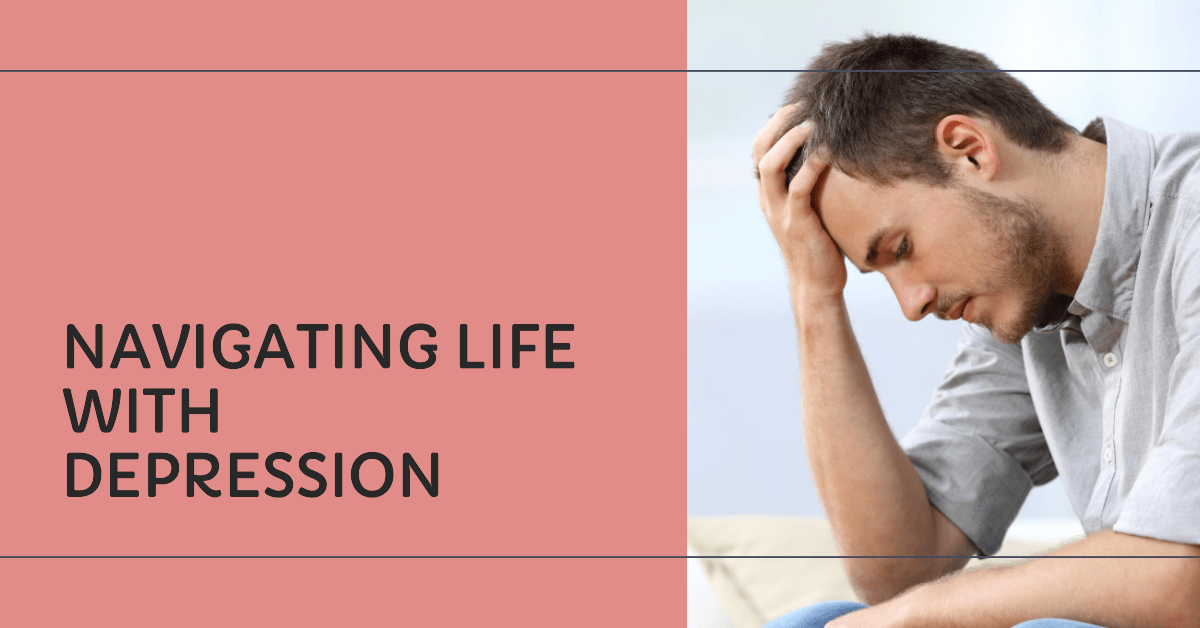Depression is a mental health condition that can have a significant impact on a person’s daily life. It affects not only the individual’s emotional well-being but also their physical health, psychological state, social interactions, and productivity. Understanding the various ways in which depression manifests itself and influences different aspects of life is crucial in providing effective support and treatment. This article aims to explore the multifaceted effects of depression on daily life and shed light on the challenges faced by individuals living with this condition.
Understanding Depression
Before embarking on a journey into soul therapy and delving into how depression affects daily life, it is essential to have a clear understanding of what depression is. Depression is a mood disorder characterized by persistent feelings of sadness, hopelessness, and a lack of interest or pleasure in activities. It is more than just feeling down or experiencing a short-lived bout of sadness; depression is a long-term condition that can significantly impact a person’s overall well-being.
Defining Depression: A Brief Overview
Depression is a complex mental health condition that affects millions of people worldwide. It is important to recognize that depression is not a sign of weakness or a character flaw. It is a serious medical condition that should be treated with compassion and understanding. Depression can occur due to a combination of genetic, biological, environmental, and psychological factors.
Common Symptoms of Depression
Depression can present itself in various ways, and the symptoms may vary from person to person. Some common symptoms of depression include persistent feelings of sadness or emptiness, loss of interest or pleasure in activities, changes in appetite and sleep patterns, fatigue, difficulty concentrating, feelings of guilt or worthlessness, and even thoughts of self-harm or suicide. It is essential to recognize these symptoms and seek professional help if you or someone you know is experiencing them.
The Impact of Depression on Physical Health
Depression does not only affect one’s emotional well-being but can also have a profound impact on physical health. Let us explore two significant ways in which depression can influence physical health: sleep patterns and appetite.
Depression and Sleep Patterns
Sleep disturbances are a common symptom of depression. Some individuals may experience insomnia, struggle with falling asleep or staying asleep throughout the night, or may find themselves sleeping excessively. Sleep deprivation or disturbed sleep can further contribute to feelings of fatigue and worsen the symptoms of depression. Establishing a consistent sleep routine and seeking professional help, such as therapy or medication, can help regulate sleep patterns in individuals with depression.
Depression’s Effect on Appetite and Weight
Depression can also disrupt normal eating patterns and lead to changes in appetite. Some individuals may experience a loss of appetite and a subsequent drop in weight, while others may find solace in food and experience an increased appetite, resulting in weight gain. These fluctuations in appetite can contribute to nutritional imbalances and interfere with overall physical health. Seeking professional guidance and establishing a balanced eating routine can help manage the impact of depression on one’s appetite and weight.
The Psychological Effects of Depression
In addition to its physical impact, depression can significantly influence a person’s psychological well-being. Let us explore two key areas in which depression affects individuals psychologically: cognitive function and emotional changes.
Depression and Cognitive Function
Depression can impair cognitive abilities, making it challenging to concentrate, remember information, and make decisions. This cognitive fog can affect various aspects of life, including work or academic performance, daily tasks, and even social interactions. Seeking professional support, engaging in cognitive exercises, and adopting healthy lifestyle habits can help improve cognitive function and mitigate the impact of depression on daily life.
Emotional Changes Due to Depression
Depression can cause individuals to experience profound emotional changes. They may feel persistently sad or numb, have a reduced ability to experience pleasure or joy, and struggle to regulate their emotions effectively. This emotional turmoil can strain relationships, hinder social interactions, and contribute to feelings of isolation. It is vital for individuals with depression to seek support from loved ones, professional therapy, and practice self-care techniques to manage their emotional well-being.
Depression’s Influence on Social Interactions
Depression can significantly impact a person’s social interactions and relationships. It can lead to isolation, withdrawal, and difficulties in communicating effectively with others. Let us explore two significant aspects of social interactions affected by depression: isolation and communication.
Depression and Isolation
Individuals with depression often experience a strong desire to isolate themselves from social situations and withdraw from their usual activities. This withdrawal can lead to feelings of loneliness, further exacerbating depressive symptoms. It is crucial for individuals with depression to find a balance between taking time for themselves and seeking support and social connections. Engaging in support groups, therapy, or activities they enjoy can help combat feelings of isolation.
How Depression Affects Communication
Depression can hinder effective communication, making it difficult for individuals to express their emotions, thoughts, or needs. They may struggle to find the words to communicate their experiences or may feel a sense of disconnect from others. It is important for individuals with depression to practice open communication and express their feelings to trusted individuals in their lives. Seeking therapy or attending support groups can provide a safe space for individuals to work on their communication skills and improve their interpersonal interactions.
The Role of Depression in Work and Productivity
Depression can considerably impact an individual’s ability to perform well at work or maintain productivity levels. Let us explore two significant areas in which depression affects individuals in their work environment: motivation and concentration and the economic cost of depression.
Depression’s Impact on Motivation and Concentration
Individuals with depression often struggle with a diminished sense of motivation, making it challenging to start or complete tasks. They may also find it difficult to concentrate, leading to decreased productivity and performance. Developing strategies to maintain motivation, such as setting achievable goals, practicing self-care, and seeking support from colleagues or supervisors, can help individuals with depression navigate their work responsibilities effectively.
The Economic Cost of Depression
The impact of depression extends beyond the individual and can have significant economic consequences. Depression-related productivity loss, absenteeism, reduced work performance, and increased healthcare costs all contribute to a considerable economic burden. Recognizing the economic cost of depression reinforces the importance of providing comprehensive support and resources to individuals affected by this condition.
Conclusion
Depression can affect all aspects of daily life, presenting challenges in physical health, psychological well-being, social interactions, and work productivity. It is a complex condition that requires understanding, support, and appropriate treatment. By recognizing and addressing the various ways in which depression manifests in individuals’ lives, we can work towards creating a society that promotes mental health and provides the necessary resources for those living with depression to thrive.





